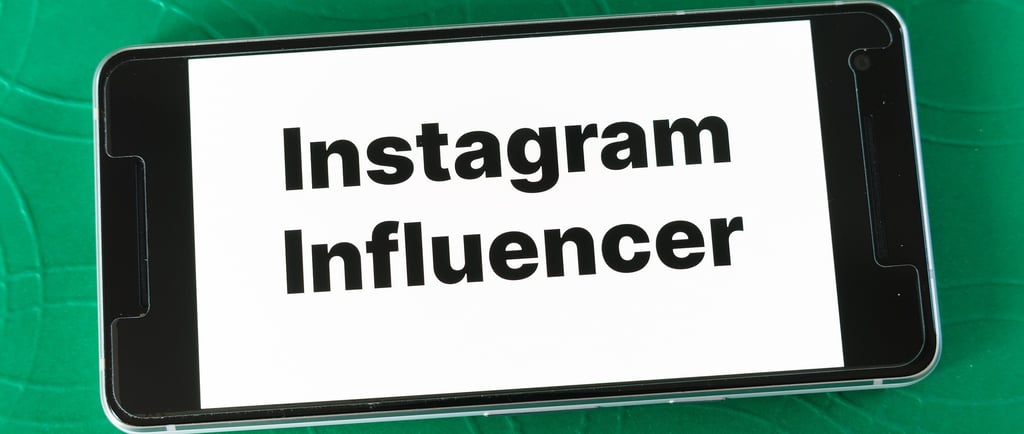The Power of Influencer Marketing: How Brands Can Leverage Authentic Engagement
Influencer marketing has transformed the way brands connect with audiences. In an era where consumers trust peer recommendations more than traditional advertising, influencers play a crucial role in shaping brand perception and driving engagement. With the rise of social media platforms and content creators, businesses must understand how to leverage influencer marketing effectively to create authentic brand experiences and boost conversions.
MJC
2/26/20252 min read


1. Why Influencer Marketing Works
Influencer marketing thrives on authenticity and trust. Unlike traditional ads, influencers build genuine relationships with their followers, making their recommendations more impactful.
Key Benefits of Influencer Marketing:
✅ Increased Credibility & Trust: Influencers have established authority in their niche, making brand endorsements more believable. ✅ Enhanced Engagement: Authentic content drives higher interactions compared to brand-generated ads. ✅ Higher Conversion Rates: Consumers are more likely to purchase products recommended by influencers they trust. ✅ Wider Audience Reach: Collaborations help brands tap into new demographics and expand their customer base. ✅ Improved SEO & Online Visibility: Influencer-generated content often ranks well on search engines, boosting a brand’s online presence.
2. Types of Influencers and How to Choose the Right One
Not all influencers are created equal. Brands must choose influencers based on relevance, audience engagement, and alignment with brand values.
Categories of Influencers:
🔹 Mega-Influencers (1M+ followers): Best for brand awareness and global campaigns. 🔹 Macro-Influencers (100K–1M followers): Great for reaching a broad audience with high engagement. 🔹 Micro-Influencers (10K–100K followers): More affordable, with niche audiences and strong trust factors. 🔹 Nano-Influencers (<10K followers): Ideal for hyper-local marketing and highly personalized recommendations.
What This Means for Businesses: Brands should partner with influencers who align with their target audience, values, and marketing goals to maximize campaign effectiveness.
3. Best Practices for Successful Influencer Marketing Campaigns
To ensure an influencer marketing campaign delivers results, brands must focus on strategic planning and execution.
Key Strategies for Success:
🔹 Set Clear Goals: Define campaign objectives (brand awareness, lead generation, sales, etc.). 🔹 Authentic Collaboration: Allow influencers creative freedom to maintain authenticity. 🔹 Use Multiple Platforms: Leverage Instagram, TikTok, YouTube, and LinkedIn for diverse audience engagement. 🔹 Incorporate SEO Optimization: Use influencer-generated content to improve search rankings and drive organic traffic. 🔹 Measure Performance: Track KPIs like engagement rates, website traffic, and conversions. 🔹 Long-Term Partnerships: Build lasting relationships with influencers for sustained impact.
What This Means for Businesses: A well-executed influencer marketing strategy can create lasting brand loyalty and significantly boost ROI.
4. Case Studies: Brands Winning with Influencer Marketing
Several global brands have successfully harnessed influencer marketing to enhance their visibility and sales.
Successful Campaigns:
📌 Nike & Athletes: Partnering with sports influencers to drive performance-based marketing. 📌 Fenty Beauty & Micro-Influencers: Leveraging beauty influencers for inclusive product promotions. 📌 Airbnb & Travel Creators: Using travel bloggers to showcase unique stays worldwide. 📌 Amazon & Affiliate Influencers: Using product reviews and tutorials to drive e-commerce sales.
What This Means for Businesses: Even small brands can replicate these strategies by working with niche influencers in their industry.
5. The Future of Influencer Marketing
As influencer marketing evolves, brands need to stay ahead of emerging trends.
Key Trends to Watch:
🚀 AI & Virtual Influencers: AI-generated personalities will become part of brand marketing. 🚀 Live Shopping & Social Commerce: Influencers will drive real-time purchases through live streams. 🚀 Performance-Based Collaborations: Brands will shift to ROI-driven influencer partnerships. 🚀 Greater Transparency: Stricter regulations will demand disclosure of sponsored content. 🚀 Voice & Search Optimization: Influencers’ content will play a role in voice search rankings and featured snippets.
What This Means for Businesses: Brands must continuously adapt their influencer marketing strategies to keep up with consumer expectations and industry shifts.
Final Thoughts: Leveraging Influencer Marketing for Business Growth
Influencer marketing is not just a trend—it’s a powerful tool that drives authentic engagement, enhances brand credibility, and increases sales. By collaborating with the right influencers, businesses can build stronger relationships with their audiences and achieve sustainable growth.
At MJC Africa Ltd, we help brands craft high-impact influencer marketing strategies that drive results.
📞 Ready to unlock the power of influencer marketing? Contact us today!
🚀 #InfluencerMarketing #BrandEngagement #DigitalMarketing #MJCInsights #SEO #SocialCommerce
